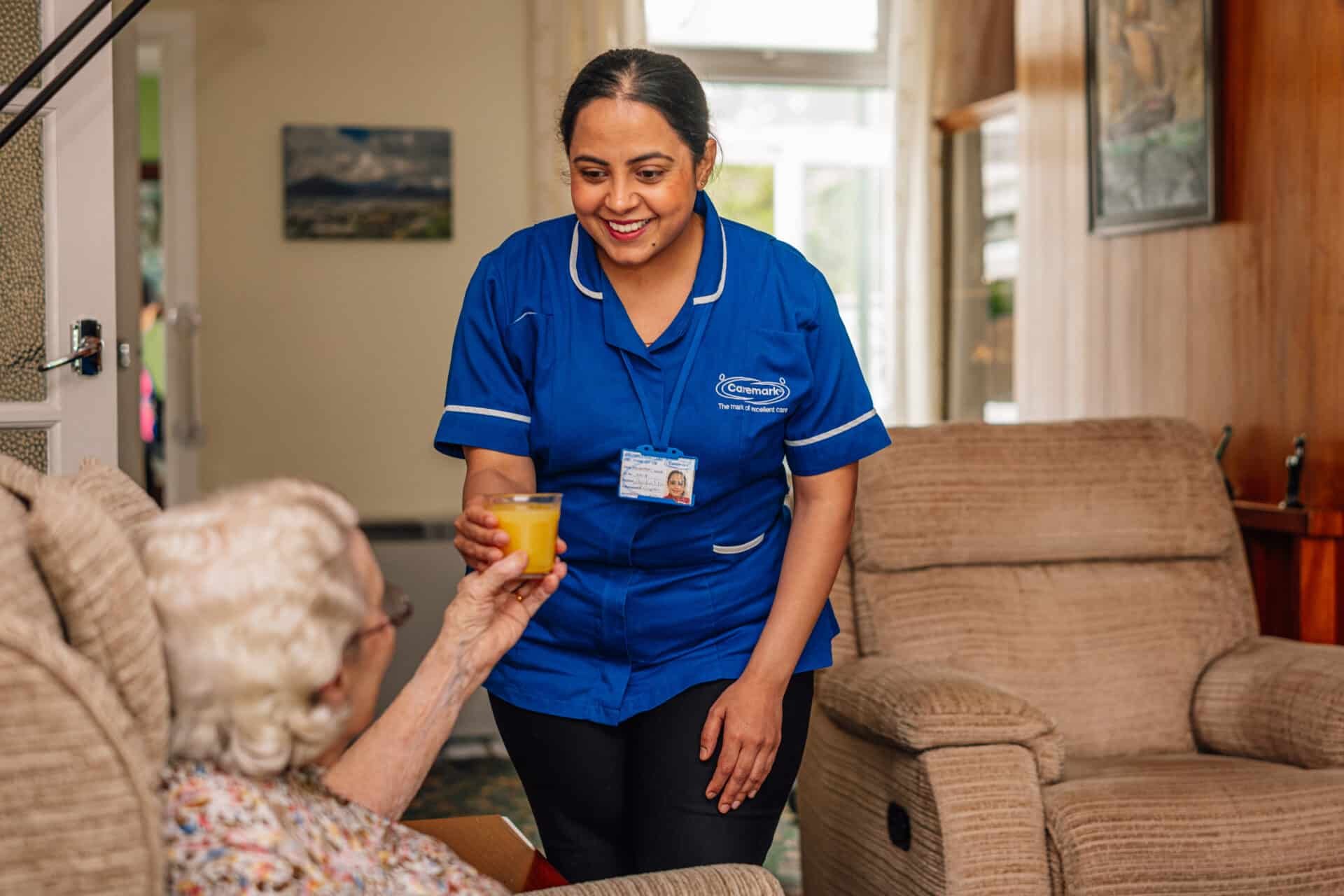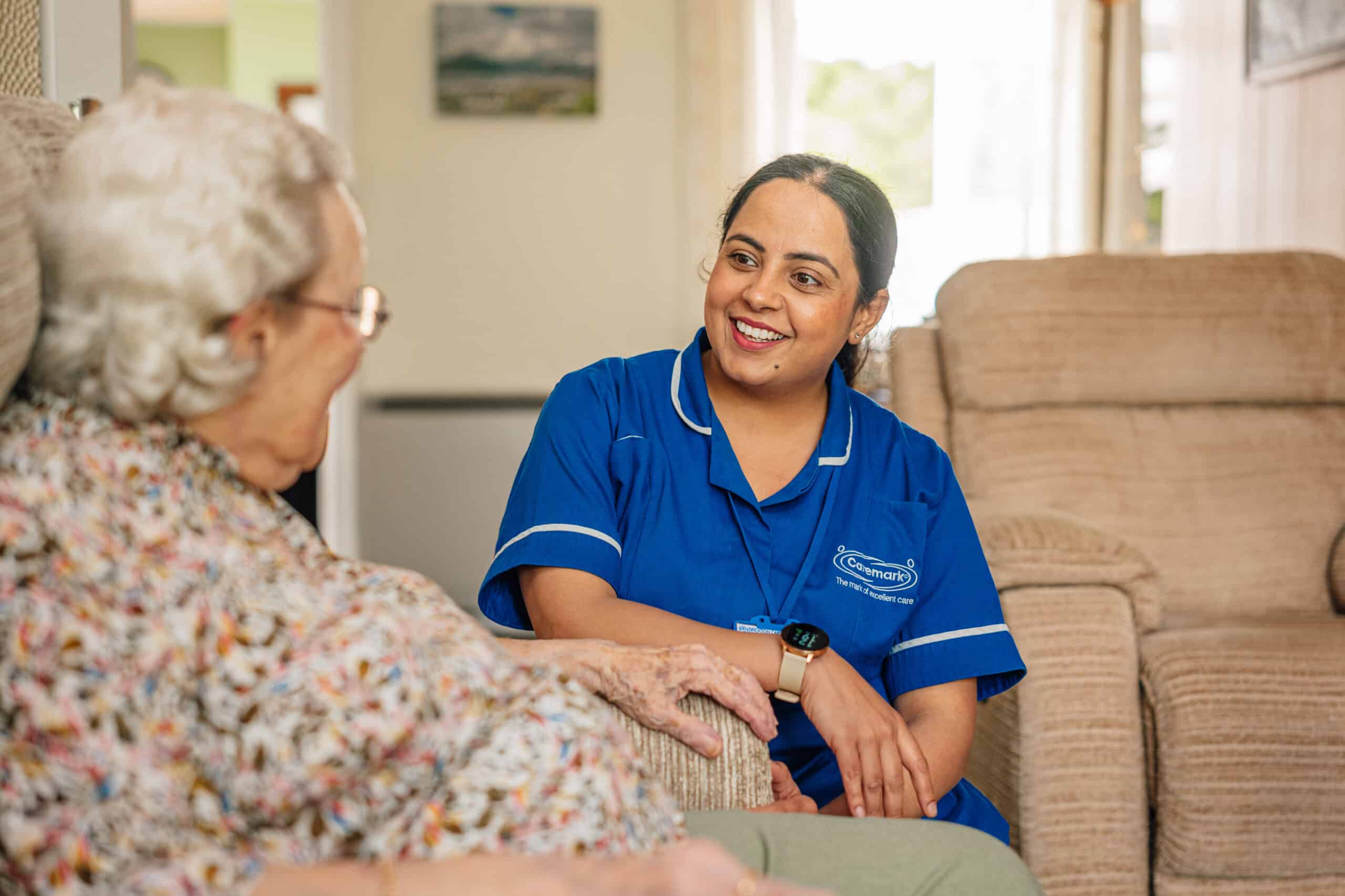Sepsis in Older People: Why our Carers Play a Life-Saving Role

Sepsis is often called the “silent killer”, and for older people, it is considered a medical emergency. Each year, thousands of older adults in the UK are affected by sepsis, and sadly, many do not survive. The good news is that with early recognition and quick action, lives can be saved.
At Caremark Cheltenham and Gloucester, our carers are at the heart of this response; they play a critical role in both spotting the signs of sepsis early and in supporting their customers before, during, and after treatment.
Why Sepsis is So Dangerous for Our Older Customers
Older people are particularly vulnerable to sepsis for several reasons:
- Weaker immune systems mean they can’t fight infections as effectively.
- Existing health conditions such as diabetes, heart disease, or COPD increase the risk.
- Subtle symptoms often replace the “classic” signs. Instead of a high fever, an older person may just seem more tired, confused, or withdrawn.
- Delayed diagnosis happens when early warning signs are mistaken for “normal ageing” or dementia.
Sadly, when sepsis is not spotted and treated quickly, it can lead to organ failure, long-term decline, or even death.
The Carer’s Role: Spotting the Signs of Sepsis in Older People
All our carers are in a unique position because they know their customers’ usual routines and behaviours better than anyone else. This makes them the first line of defence against sepsis.
Red flag symptoms our carers watch out for include:
- New or sudden confusion.
- Extreme shivering, high fever, or unusually low temperature.
- No urine (or very little) over a long period.
- Severe breathlessness or very rapid breathing.
- Mottled, bluish, or pale skin.
- Customers saying they feel worse than they’ve ever felt.
If something feels “not quite right,” our carers trust their instincts and act quickly, especially when it comes to sepsis in older people.

Acting Fast Saves Lives
When sepsis is suspected, every minute counts. Our carers follow specific procedures and protocols to ensure their customers’ lives are not at risk. By reporting changes immediately following company procedures, escalating their concerns promptly to the office, GP or NHS 111 or calling 999, customers’ lives can be saved.
Our carers are also vital advocates, ensuring that their older customers’ concerns are taken seriously, especially when they may struggle to speak up for themselves.
Supporting Customers Before and After Sepsis in Older People
Notwithstanding the emergency actions taken by our carers above, they also play a crucial part in reducing the risk of sepsis and supporting customers’ recovery:
- Infection prevention – encouraging good hygiene, monitoring wounds or catheter use.
- Daily support – helping customers stay hydrated, nourished, and comfortable to boost resilience against infections.
- Post-sepsis care – some survivors experience Post-Sepsis Syndrome, with fatigue, memory problems, or anxiety. Our carers provide reassurance, rehabilitation support, and a link to healthcare professionals.
In Summary
Sepsis is a serious, life-threatening condition that requires urgent attention and for older people, the risk is even higher. Caremark Cheltenham and Gloucester carers play a vital role in life-saving situations by remaining vigilant, acting promptly, and supporting recovery. By trusting their instincts and speaking up when something feels wrong, they can make all the difference.
About Caremark Cheltenham and Gloucester
Sepsis in older people can be severe, so if you are worried about a relative or friend who may have sepsis, then reach out to their GP as soon as possible. If your loved one needs care once diagnosed, our carers are here to help.